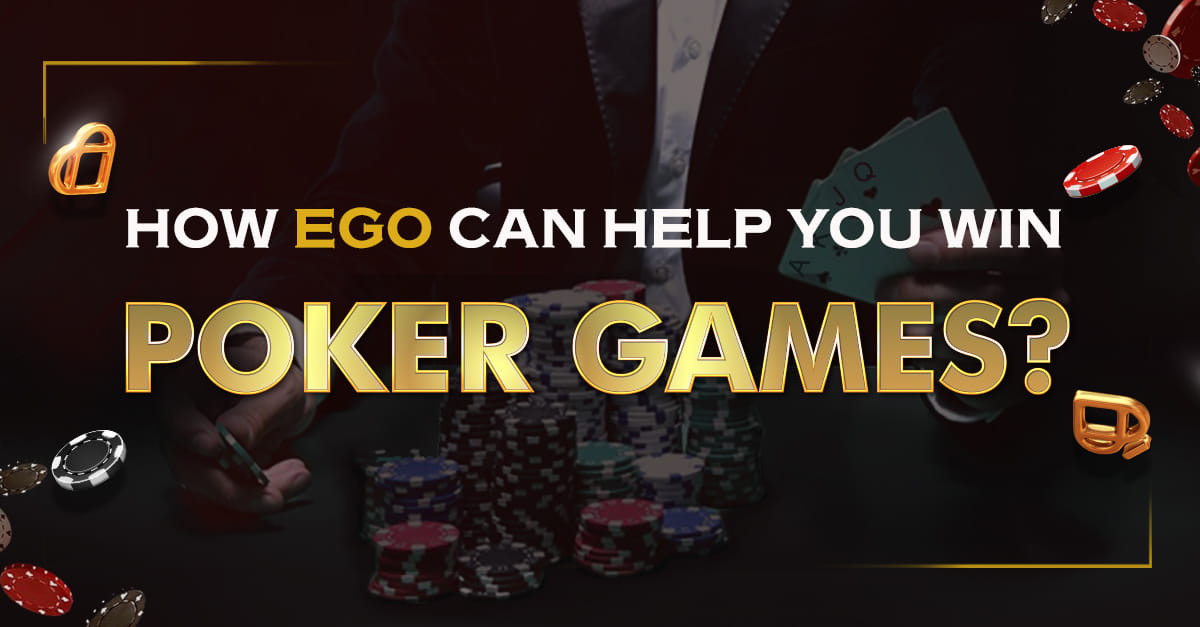Poker is a game requiring skill and strategy. However, many players overlook the importance of their mindset and ego when playing poker. While having an overly inflated ego can be detrimental to your game, having a healthy sense of confidence can help you win poker games. In this article, we will explore how ego can help you win poker games.
Confidence in your abilities
Having a healthy ego can give you the confidence to play your best game. When you are confident in your abilities, you are more likely to make smart decisions and take calculated risks. This can help you win poker games in front of other poker players by allowing you to play aggressively when the situation demands it.
Ability to read your opponents
Poker is a game of observation, and having a healthy ego can help you pick up on subtle cues from your opponents. When you have confidence in your abilities, you are more likely to trust your instincts and read your opponent’s poker players accurately. This can help you make better decisions and win more games.
Willingness to take risks
Having a healthy ego can make you more willing to take risks in poker. When you are confident in your abilities, you are more likely to trust your instincts and make bold moves that can pay off in the long run. This can help you win more games by allowing you to take advantage of opportunities that other players may overlook.
Avoiding tilt
Tilt is a common problem in poker, where players become emotional and start making poor decisions. A healthy ego can help you avoid tilt by giving you the confidence to stay focused and make rational decisions even when things are not going your way. This can help you win more games by preventing costly mistakes.
Control over your emotions
Poker can be an emotional game, and having a healthy ego can help you keep your emotions in check. When you have confidence in your abilities, you are less likely to become overwhelmed by the ups and downs of the game. This can help you stay focused and make better decisions, leading to more wins.
A healthy ego can help you win poker games by giving you the confidence to play your best game, read your opponents, take risks, avoid tilt, and control your emotions. It is important to remember, however, that an overly inflated ego can be detrimental to your game. It is important to strike a balance between confidence and humility and to always be willing to learn and improve your game.
Beginner Poker Strategy Tips
Start with a tight range
One of the most important things for a beginner poker player to understand is starting hand selection. Starting with a tight range of hands means that you only play a small selection of hands that have the highest chances of winning. This is a good strategy for beginners because it reduces the likelihood of making costly mistakes.
The position is key
Understanding position is an important part of poker strategy. The position you are in when playing a hand can greatly affect the way you play the hand. In general, the later your position, the more information you will have about your opponents’ hands, which can help you make better decisions.
Be patient
One of the most important things for a beginner poker player to remember is to be patient. Poker is a game that requires patience and discipline. Don’t feel like you have to play every hand, and don’t be afraid to fold if you don’t have a strong hand.
Know when to fold
Knowing when to fold is an essential part of poker strategy. As a beginner, it can be tempting to keep playing a hand even when you know it’s not strong. But folding when you have a weak hand is often the best strategy. By folding, you can save your chips when you have a better hand.
Pay attention to your opponents
Paying attention to your opponents is an important part of poker strategy. Observing their actions and betting patterns can help you determine what kind of hand they have. This information can then be used to make better decisions about your hand.
Use bluffing wisely
Bluffing is an important part of poker strategy, but it should be used wisely. Bluffing can be a powerful tool, but it can also be risky. As a beginner, it is important to understand when and how to bluff. A good rule of thumb is to only bluff when you have a strong hand, and your opponents are likely to fold.
Manage your bankroll
Managing your bankroll is an important part of poker strategy. It’s important to set a budget for yourself and stick to it. This will help you avoid spending more money than you can afford to lose. It’s also important to only play in games you can afford and to avoid playing in games that are too high stakes for your bankroll.
Practice makes perfect
Finally, one of the best things you can do as a beginner poker player is to practice. The more you play, the more you learn about the game, and the better you will become. You can practice by playing online or by joining a local poker group. Remember to start with small stakes until you feel more comfortable with the game.
